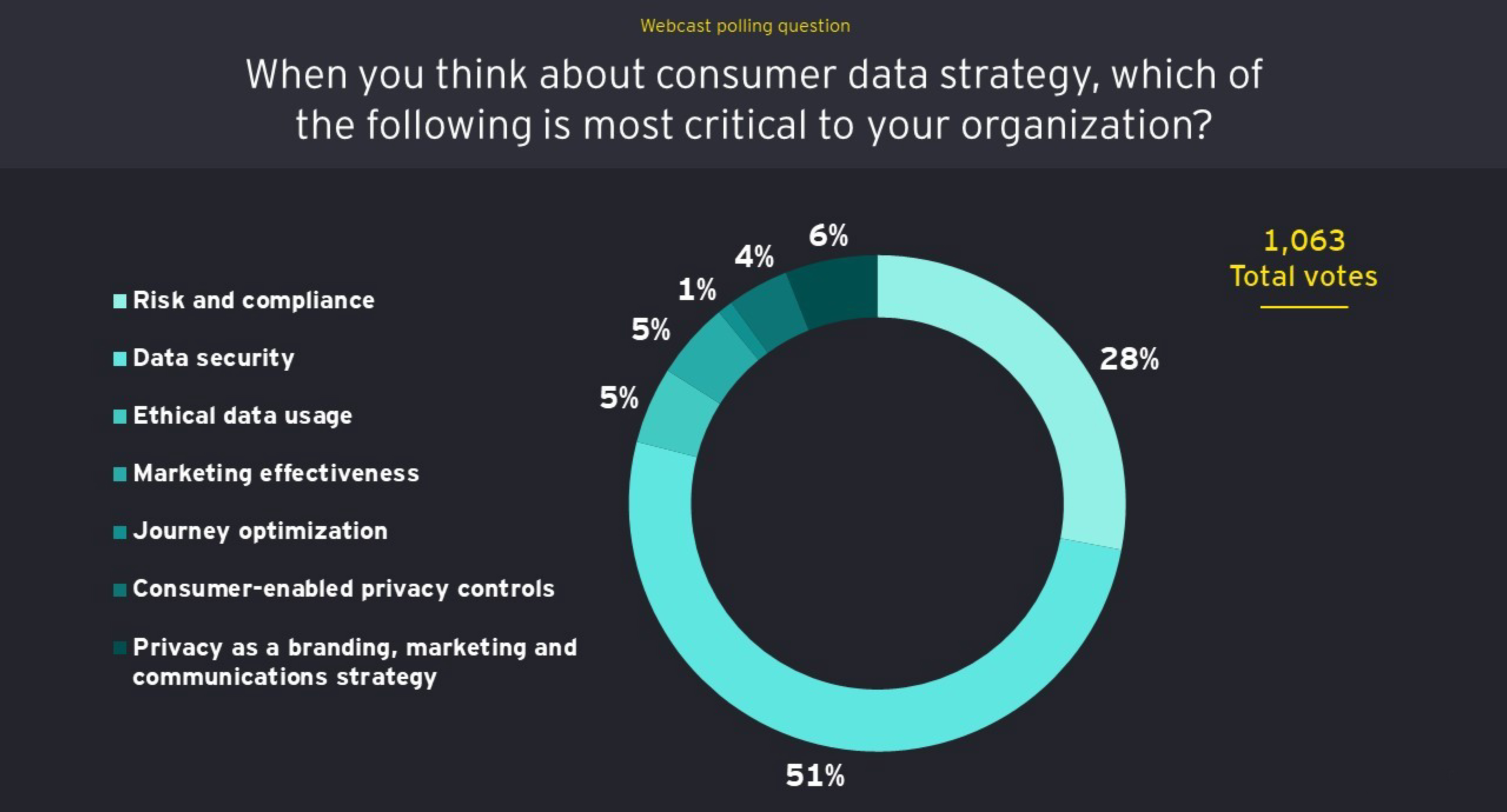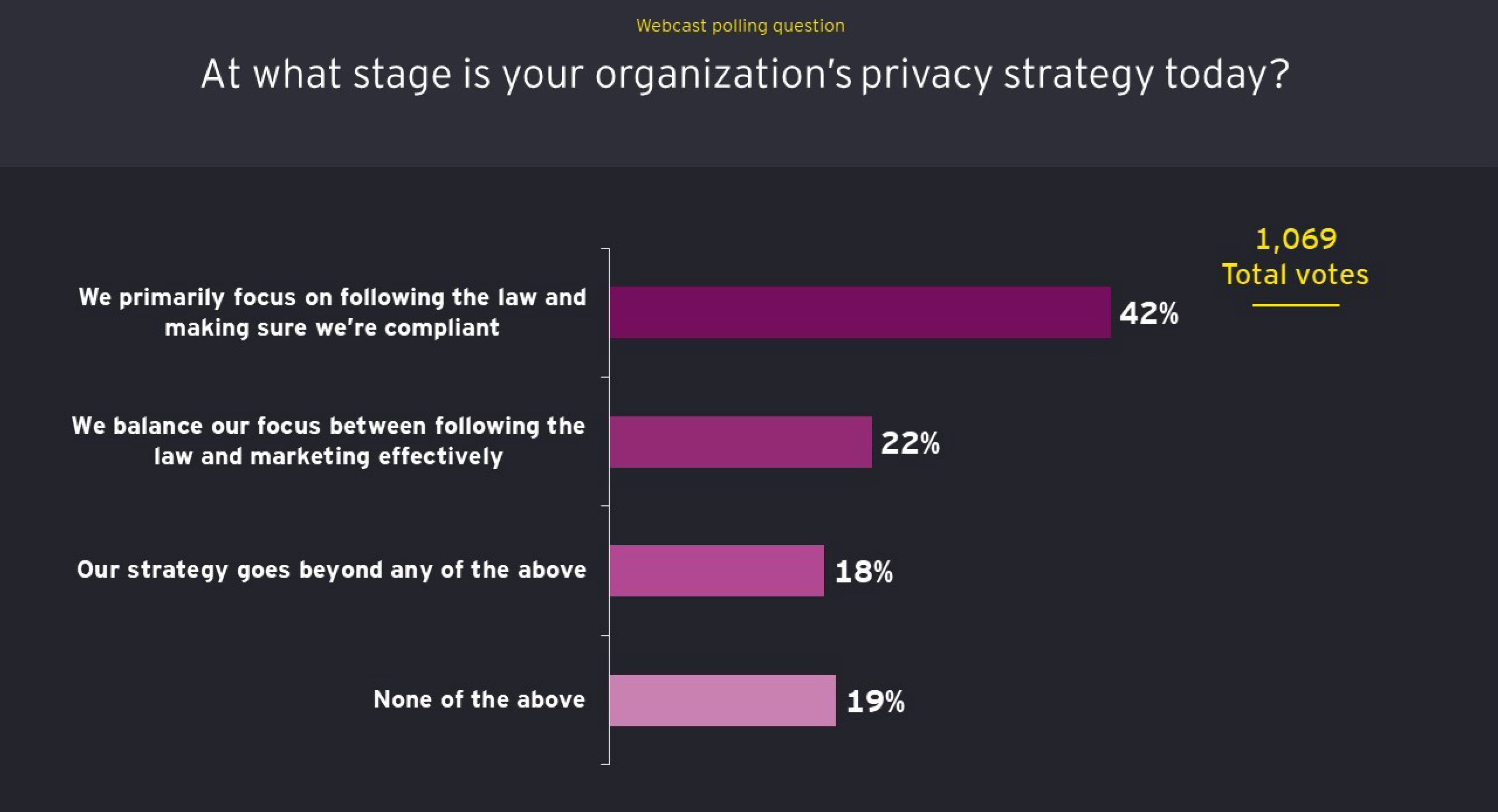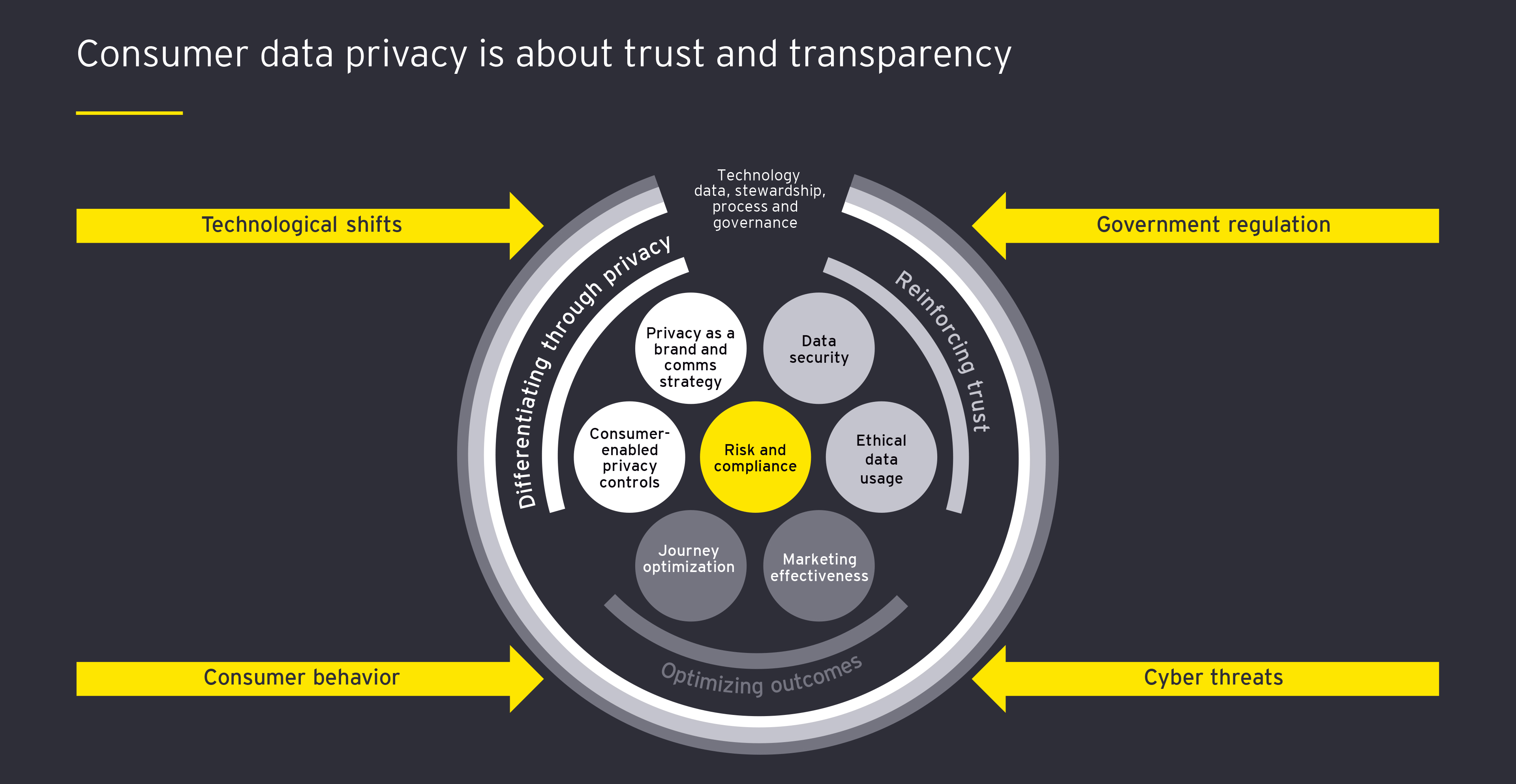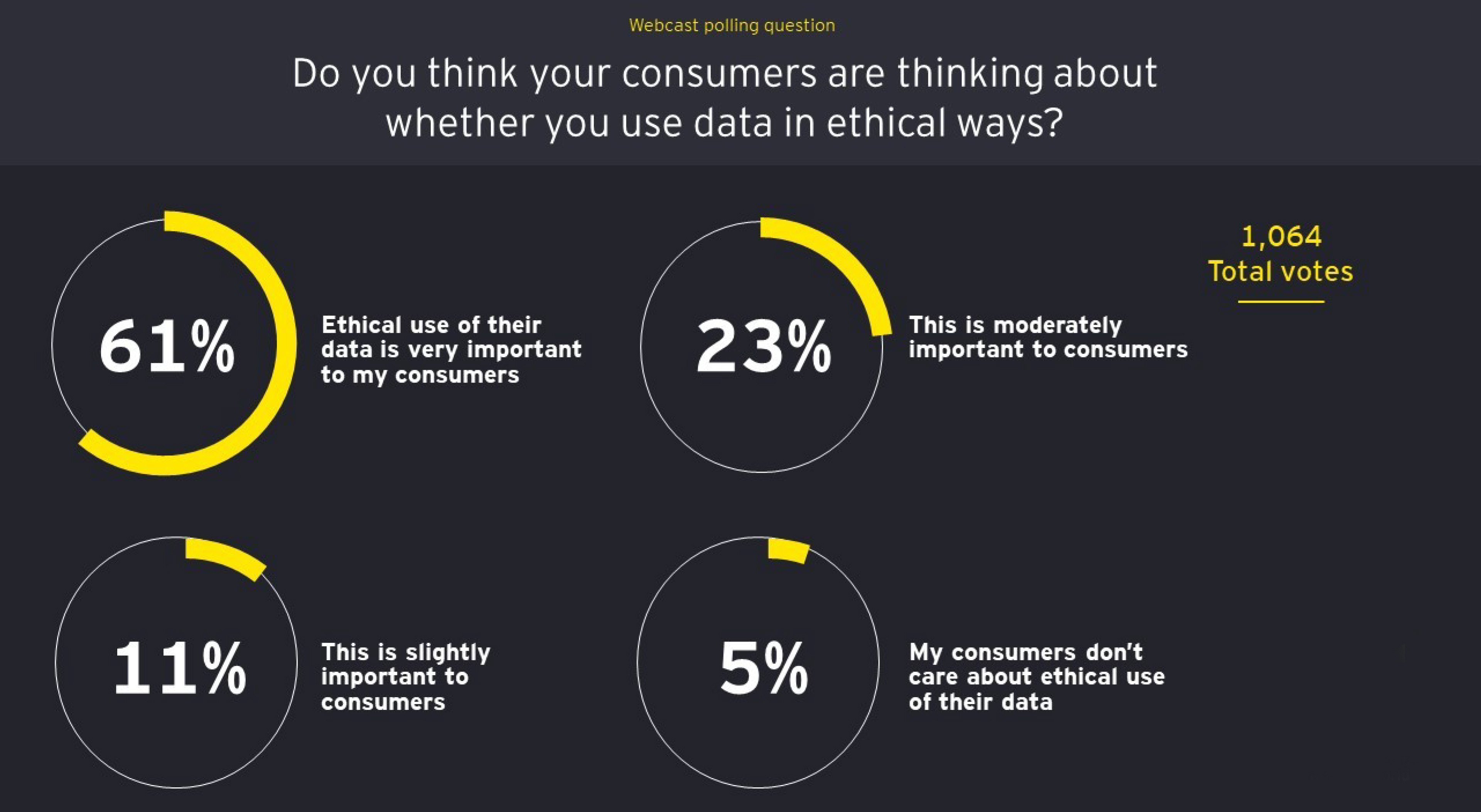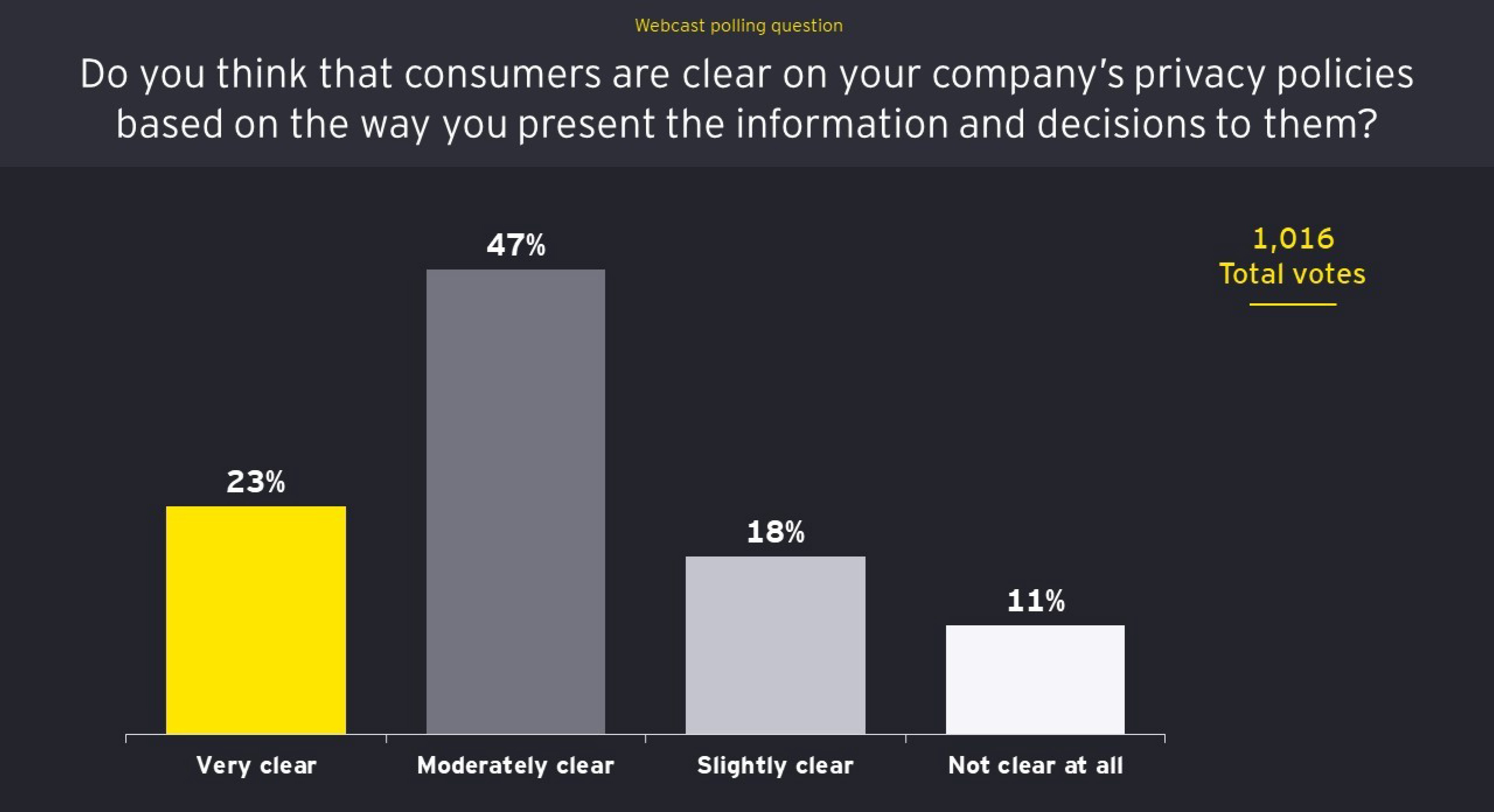Optimizing outcomes
Consumer data is fueling more effective marketing strategies and more intelligently orchestrated customer journeys. Chief marketing officers are aggressively accelerating first-party data strategies, particularly as they work to decrease their reliance on third-party data before the browser changes in January 2022.
Marketing is seeing an overall shift as customer relationship management efforts and media strategies become more deeply integrated. As a result, companies are using first-party data to power important use cases like email marketing or personalization, but those efforts also bring better effectiveness and efficiency from their overall media spend.
Beyond marketing, that same consumer data offers the opportunity to connect the full customer journey, putting the humans at the center. From acquisition, to conversion, to experience, to customer care, different elements of the journey can be made more relevant and anticipatory using consumer data. And the less friction there is in the journey, the more likely that prospective customers become loyal customers with the potential for higher lifetime value.
Differentiating through privacy
Giving individuals granular choice and control over their data is becoming much more of a requirement under the law — so why not use this approach now to create a more navigable and transparent exchange with the customer? Among respondents in the recent EY webcast, almost half only found their privacy policies moderately clear and 29% found the policies slightly clear or not clear at all.

